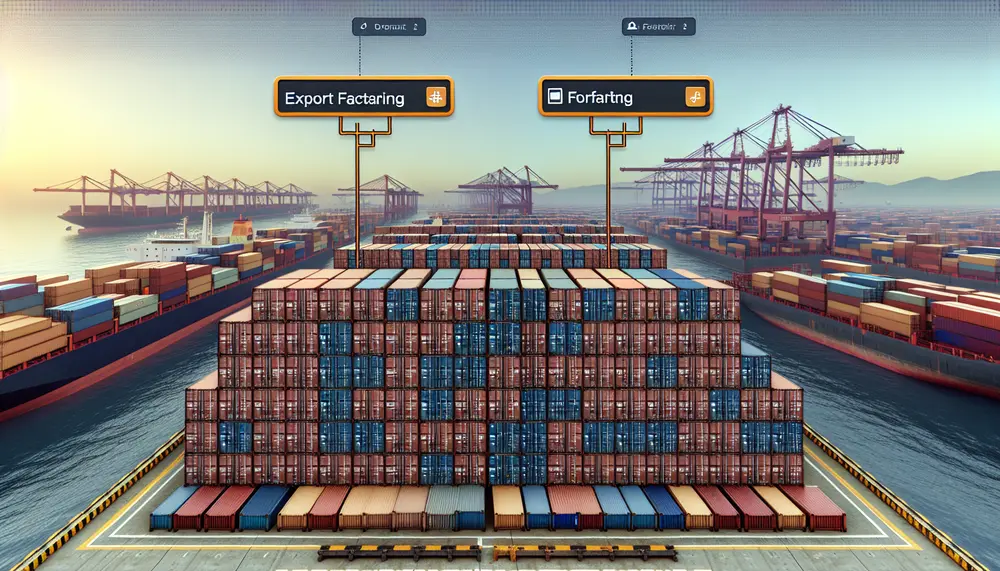Without recourse
Without recourse
Without Recourse in Financial Factoring
When businesses need cash quickly, they often turn to financial factoring. This is a process where a company, known as the 'factor', buys another business's unpaid invoices at a discount. But what if the clients on those invoices don't pay? This is where without recourse comes into play. The term 'without recourse' means that the factor takes on the risk of non-payment. In other words, if a customer fails to pay the invoice, the factor cannot demand the money back from the business that sold the invoices.
How Does Without Recourse Benefit a Business?
Choosing a without recourse factoring agreement can be beneficial for a business because it removes the risk of debt from their shoulders. It's lights out for bad debt worries as the responsibility now lies with the factor. This can greatly improve a company's cash flow and credit management, allowing them to focus on growing their business instead of chasing debts.
Considerations of Without Recourse Factoring
While it might sound like a dream come true, without recourse factoring often comes at a higher cost. Since the factor takes on more risk, they may charge higher fees or purchase the invoices for a lower percentage of their total value. Companies should weigh these costs against the benefits of risk transfer before deciding on this type of agreement.
Examples of Without Recourse Factoring
Let's say a widget manufacturer sells $100,000 worth of invoices to a factor without recourse. If they agree on a 90% advance rate, the manufacturer gets $90,000 right away. If the end customer defaults on their payment, the factor cannot ask the manufacturer for repayment. The risk is borne exclusively by the factor.
Is Without Recourse Factoring Right for Your Business?
To decide if without recourse factoring fits your business, consider your customers' payment reliability, your cash flow stability, and your need to mitigate financial risks. It can offer peace of mind and financial stability, but always at a price. Balancing cost and risk is key to making the most informed decision.
Blog Posts with the term: Without recourse

Export factoring is a financial service where businesses sell their invoices to a factor for immediate capital, enhancing cash flow and transferring credit risk in international trade. Forfaiting involves selling longer-term receivables to a forfaiter who assumes all risks, turning...

Factoring is a financial transaction where businesses sell their accounts receivable to obtain immediate cash, while securitization involves pooling various debts and selling them as securities for long-term financing. Both strategies aim to increase liquidity but differ in complexity, scale,...

Accounts receivable factoring alters financial reporting by showing increased cash flow and reduced receivables, with associated fees affecting net income. Understanding these changes is crucial for stakeholders to assess a company's liquidity and financial strategy accurately....

A factoring facility is a financial service where businesses sell their invoices to a third party, the factor, for immediate cash, improving liquidity without incurring debt. Factoring can be with recourse (business bears risk of non-payment) or non-recourse (factor assumes...

Debt factoring and forfaiting are financial tools that improve cash flow by selling receivables; factoring suits short-term domestic needs, while forfaiting is for medium to long-term international trade. Factoring involves a credit check of the seller and can affect profit...

Export factoring without recourse is a financial service where exporters sell their invoices to a factor who assumes all credit risks, ensuring the exporter gets paid even if the overseas customer defaults. This arrangement boosts cash flow and reduces administrative...

Non-recourse factoring allows businesses to sell invoices to a factoring company, which assumes the risk of non-payment, providing immediate cash flow without liability for unpaid debts....

The maturity date in factoring is the deadline for payment of a factored invoice, affecting cash flow and risk management. Factoring provides immediate capital by selling invoices to a factor but differs in timing and risk between advance (immediate payment)...

Advance and maturity factoring are two types of financial solutions that allow businesses to manage cash flow by selling their accounts receivable. Advance factoring provides immediate cash, typically 75-95% of the invoice value, while maturity factoring pays the full amount...

Factoring is a financial strategy that allows businesses to sell their accounts receivable for immediate cash, improving liquidity and aiding in managing working capital. It involves three parties—the business selling invoices, the debtor owing payment, and the factor purchasing the...

Maturity Factoring is a financial service where businesses sell their future-due invoices to a factor who pays them on the invoice's maturity date, allowing for aligned cash flow and predictable financial planning. It differs from traditional factoring by not providing...

Factoring laws regulate the sale of invoice receivables from businesses to third-party factors, ensuring fair and transparent financial transactions with legal protections for all parties involved. These laws cover various aspects such as assignment of receivables, factor's rights, recourse terms,...

Finance factoring companies provide immediate cash to businesses by purchasing their accounts receivable at a discount, focusing on the creditworthiness of customers rather than the business itself. These entities also offer services like credit analysis and collections, acting as intermediaries...

Factoring of debts allows businesses to sell their accounts receivable for immediate cash, improving liquidity and enabling them to manage short-term expenses and growth opportunities without incurring new debt. Unlike traditional lending which depends on the business's creditworthiness, factoring focuses...
